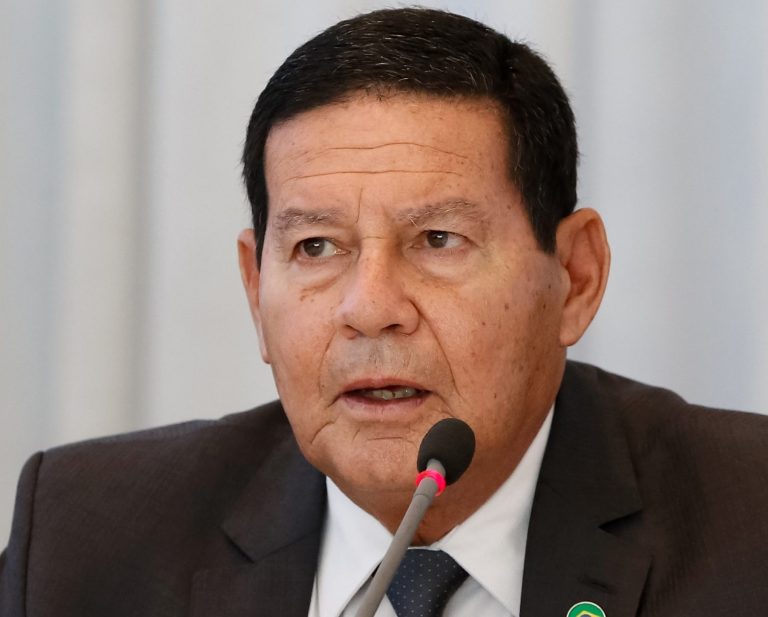The Betrayal Within: Hamilton Mourão’s Alleged Sabotage of Brazilian Sovereignty
In a startling revelation that has sent shockwaves through the conservative circles of Brazil, former Vice President Hamilton Mourão stands accused of undermining the very government he was part of. According to a report by the Financial Times, Mourão allegedly worked against President Jair Bolsonaro, engaging in actions that some interpret as a betrayal of national interests for the sake of foreign influence.
The video, shared by Denise Mury on X, captures a narrative that paints Mourão as a key figure in a discreet U.S. campaign to defend Brazil’s electoral system—a campaign that reportedly began to take shape after a conversation between Mourão and Tom Shannon, a former U.S. Department of State official. This interaction, detailed in the Financial Times, suggests that Washington may have leveraged Mourão to articulate a defense of Brazil’s voting system, a move that critics argue was less about democracy and more about ensuring a political outcome favorable to the Biden administration.
Mourão’s role, as described, is particularly troubling for those who value Brazilian sovereignty. The allegations imply that he opened the door to unprecedented foreign interference, with entities like the CIA, the Pentagon, and the White House reportedly pressuring Brazilian authorities to shift the political landscape in a direction that would marginalize Bolsonaro. This is not merely a matter of political disagreement but a potential breach of trust that could have lasting implications for Brazil’s autonomy.
The timing of these revelations is crucial. As Bolsonaro faces a barrage of legal challenges, Mourão’s absence from any related inquiries raises eyebrows. Some speculate that his alleged cooperation with U.S. interests might have shielded him from scrutiny, a notion that fuels the fire of conspiracy theories about a deep-state operation within Brazil’s political elite.
For conservatives, this situation is a stark reminder of the dangers of internal division and external manipulation. Mourão, once seen as a stabilizing force within Bolsonaro’s administration, now appears to some as a Trojan horse, facilitating a narrative that prioritizes international agendas over national ones. The idea that a high-ranking Brazilian official could be complicit in such a scheme is a bitter pill to swallow, especially for those who have long championed Bolsonaro’s vision of a stronger, more independent Brazil.
The Financial Times’ report does not just highlight a personal betrayal; it underscores a broader concern about the integrity of Brazil’s political process. If true, Mourão’s actions could be seen as part of a pattern where global powers seek to influence the internal affairs of sovereign nations, often under the guise of promoting democracy. This is a narrative that resonates deeply with conservative values, which emphasize the importance of national self-determination and resistance to external pressures.
As the dust settles, the conservative base in Brazil is left to grapple with the implications of these allegations. The call for accountability is loud, with many demanding that Mourão face the same scrutiny as others involved in the political turmoil of recent years. The hope is that this episode will serve as a wake-up call, reinforcing the need for vigilance against both internal saboteurs and external interferers.
In the end, the story of Hamilton Mourão is more than just a tale of political intrigue; it is a cautionary tale about the fragility of trust and the enduring challenge of maintaining national sovereignty in an increasingly interconnected world. For Brazil’s conservatives, it is a reminder that the battle for the country’s future is not just fought on the streets or in the courts but also within the halls of power, where loyalty and principle are put to the ultimate test.


